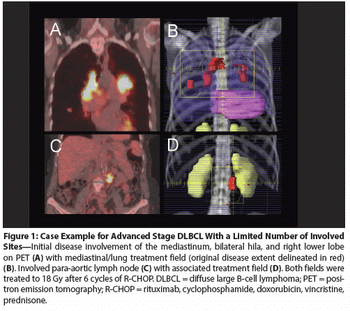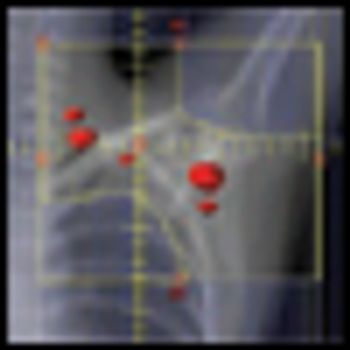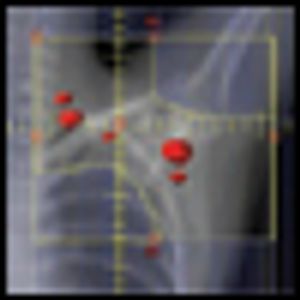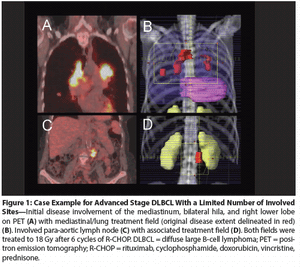
In this review, we will first briefly summarize prior attempts to improve outcomes in advanced DLBCL using systemic therapy approaches, and then we will highlight the potential role of RT in advanced DLBCL.

Your AI-Trained Oncology Knowledge Connection!


In this review, we will first briefly summarize prior attempts to improve outcomes in advanced DLBCL using systemic therapy approaches, and then we will highlight the potential role of RT in advanced DLBCL.

In Hodgkin lymphoma, as with many other malignancies, a combined-modality approach has proven successful. This tactic capitalizes on the relative advantages of both modalities, yet minimizes risk by avoiding intense exposure to either. This article will summarize the data supporting this approach in early-stage Hodgkin lymphoma.

The effectiveness of RT in the palliative setting is sometimes overlooked; however, RT can provide excellent palliation for patients whose disease becomes refractory to other modalities.

During the 1980s, the only drug routinely used to treat colorectal carcinoma was single-agent fluorouracil (5-FU), a drug that had shown no proven benefit in the adjuvant setting. Since then, significant improvements in the overall management of colorectal cancer have been made. This review will compare today's standard of care for adjuvant colorectal carcinoma to that practiced 20 years ago. The authors examine key questions asked about adjuvant therapy and the answers that ultimately changed clinical practice standards and improved overall survival for patients diagnosed with this disease. In addition, this review explores whether 5-FU should be given as part of a multidrug regimen and which route of administration is best when this drug is given. Further, the authors delve into both the use of locally directed therapies to the liver or peritoneum to improve outcomes and the selection of patients to receive adjuvant chemotherapy. Finally, a look to the future shows monoclonal antibodies to be an avenue of great promise in fighting colorectal cancer.

Published: December 18th 2012 | Updated:

Published: December 1st 2010 | Updated:

Published: April 30th 2006 | Updated:

Published: December 15th 2014 | Updated: